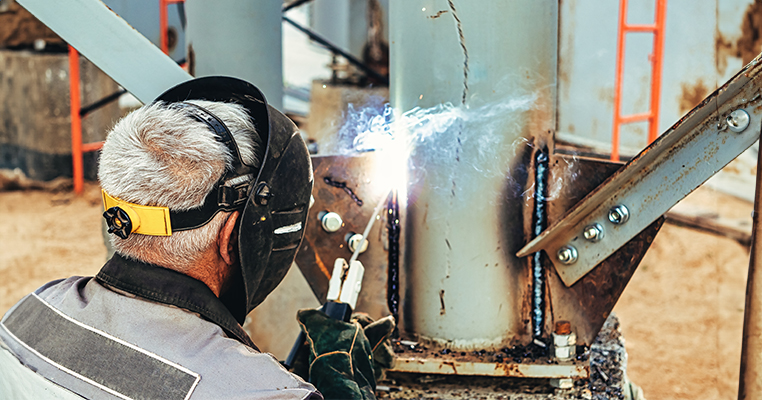Impact of welding parameters on joint integrity
The Crucial Role of Impact of Welding Parameters on Joint Integrity in Ensuring Business Success
In the world of manufacturing and engineering, the quality of welds plays a vital role in determining the overall integrity of a structure or product. A weak or poorly welded joint can lead to catastrophic failures, resulting in costly repairs, lost productivity, and even safety hazards. This is where the impact of welding parameters on joint integrity comes into play a critical laboratory service that helps businesses ensure the reliability and performance of their welds.
At Eurolab, we specialize in providing expert laboratory services that cater to the needs of industries demanding precision and quality. Our Impact of Welding Parameters on Joint Integrity service is designed to help manufacturers optimize their welding processes, reduce defects, and guarantee compliance with industry standards. In this article, well delve into the significance of this service, its advantages, and how it can benefit your business.
What is Impact of Welding Parameters on Joint Integrity?
The impact of welding parameters on joint integrity refers to the study of how variations in welding conditions affect the strength and reliability of a weld. This involves analyzing the effects of different variables such as heat input, welding speed, electrode stick-out, and shielding gas flow rate on the welds mechanical properties.
Welding is a complex process that requires careful control over various parameters to produce high-quality joints. Even minor deviations from optimal conditions can lead to defects, reduced strength, or even complete failure of the weld. By understanding how different welding parameters interact with each other, manufacturers can develop optimized processes that minimize risks and ensure consistent quality.
Advantages of Using Impact of Welding Parameters on Joint Integrity
Our laboratory service offers numerous benefits for businesses seeking to improve their welding processes
Reduced Defects By optimizing welding conditions, you can minimize the occurrence of defects, such as porosity, lack of fusion, or cold laps.
Improved Strength Our analysis helps you identify the optimal welding parameters that result in strong and reliable joints.
Enhanced Productivity With our expert guidance, youll be able to streamline your welding processes, reducing production time and increasing efficiency.
Compliance with Industry Standards We ensure that your welds meet or exceed industry standards, minimizing the risk of costly rework or repairs.
Cost Savings By eliminating defects and improving productivity, our service can help you save significant amounts on materials, labor, and overhead costs.
Increased Customer Satisfaction With high-quality welds, youll be able to deliver products that meet customer expectations, leading to improved satisfaction and loyalty.
Key Benefits of Eurolabs Impact of Welding Parameters on Joint Integrity Service
Our laboratory service offers the following key benefits
Expert Analysis Our team of experienced engineers and technicians conducts thorough analysis of your welding processes using advanced equipment and techniques.
Customized Solutions We develop tailored recommendations to optimize your welding conditions, ensuring that you achieve optimal results for your specific application.
Comprehensive Reporting We provide detailed reports outlining the effects of different welding parameters on joint integrity, enabling you to make informed decisions about process improvements.
Frequently Asked Questions
What types of industries can benefit from Eurolabs Impact of Welding Parameters on Joint Integrity service?
Our laboratory service is suitable for various industries, including aerospace, automotive, construction, and energy.
How does the laboratory analysis process work?
We conduct a thorough review of your welding processes, collecting data on key parameters such as heat input, welding speed, and shielding gas flow rate. Our team then analyzes this information using advanced software and equipment to determine the effects of different conditions on joint integrity.
What kind of testing does Eurolab perform during the analysis?
We use a range of non-destructive testing (NDT) techniques, including radiography, ultrasonic testing, and visual inspection, to evaluate the welds mechanical properties and identify any defects or weaknesses.
In conclusion, the impact of welding parameters on joint integrity is a critical factor in ensuring the reliability and performance of welds. At Eurolab, we offer expert laboratory services that help businesses optimize their welding processes, reduce defects, and guarantee compliance with industry standards. By partnering with us, you can improve your productivity, reduce costs, and increase customer satisfaction ultimately driving business success.
Additional Resources
Benefits of Non-Destructive Testing in Welding(link to additional resource)
Welding Process Optimization Techniques(link to additional resource)
By investing in our laboratory service, manufacturers can unlock the full potential of their welding processes and achieve unparalleled levels of quality, productivity, and efficiency. Contact us today to learn more about how Eurolabs Impact of Welding Parameters on Joint Integrity service can benefit your business.




